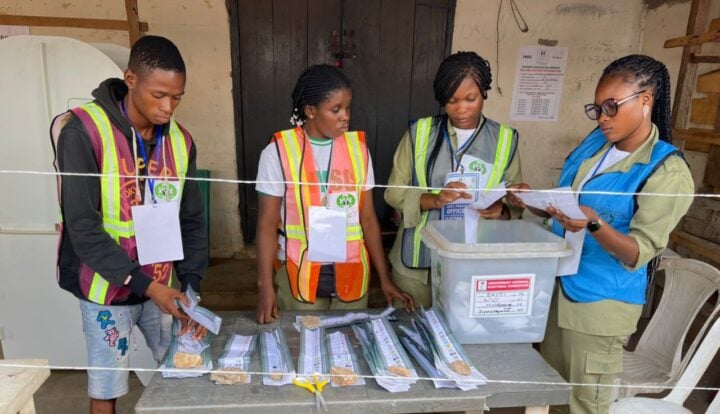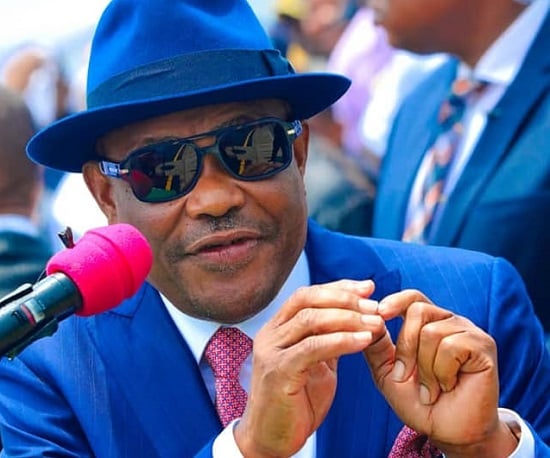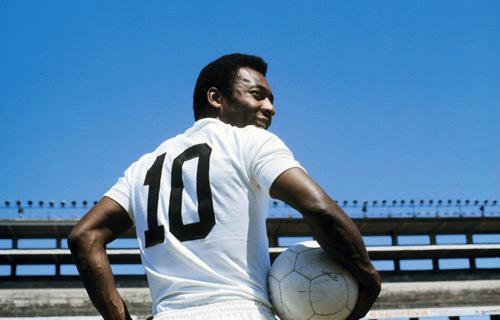In “managing” the country’s currency, and by extension, implementing the monetary policies of the federal government, Godwin Emefiele, the governor of the Central Bank of Nigeria (CBN), during the outgoing year, has caused quite some stair, either through his statements or the intents and contexts of his policies.
When sometime last year, the value of the naira against the dollar and other major currencies in the world was on a free fall (from ₦360 per dollar to over ₦700 in the black market), he laid the blame at the doorstep of Oniwinde Adedokun-owned Aboki FX – a platform that collates the black market exchange rates of the naira against major currencies on a daily basis.
After one of the monetary policy committee meetings in September 2021, the CBN governor said the apex bank had been studying the activities of Aboki FX in the past two years, and that “there was a time we asked our colleagues to call the Aboki FX to ask how he conducts the rates”. He added that Adedokun who lives in the UK publishes arbitrary rates without contacting the bureau de change (BDCs) operators for accurate, authentic and reliable data.
Emefiele alleged that the “speculative rate” being published by Aboki FX was to be blamed for the abysmally low value of the naira against the dollar. By the time this allegation was made, a dollar was being exchanged for about ₦400 at the parallel market. It would later hit an unprecedented level of ₦740, even though Aboki FX had stopped publishing anything forex-related, as it affects the Nigerian currency.
Advertisement
Emefiele recently reviewed downward the daily cash withdrawal limit via automated teller machines (ATMs) and point of sale services (POS) to ₦20,000 for private individual account holders (₦100,000 per week), and ₦100,000 for corporate business entities (₦500,000 per week).
He intended the policy to take effect from January 9, 2023. The CBN said the new withdrawal policy is a result of the need to complement the launch of the redesigned naira notes (₦200, ₦500 and ₦1,000) approved by President Muhammadu Buhari on November 23, 2022, to return the volume of physical cash that has been taken out of the banking system, and thus reduce the amount of money in circulation to tame inflation. That (notes redesigning) in itself did not come without generating a fair dose of public reactions.
Some described it as looking more like a counterfeit note, but that it would therefore be difficult to counterfeit something which originally looks fake. Funny but true. But that (controversy) is what the apex bank governor has come to be known for recently. He is always in the news for either the “wrong or the right reasons”.
Advertisement
He is in the news for the right reason if it is about (monetary) policies initiated through the institution he represents, but he is, for the wrong reason, when he is in the news for reasons different from that. For instance, in the run-up to the last parties’ presidential primary elections earlier this year, his name suddenly appeared among those in the running on the platform of the ruling All Progressives Congress (APC), gunning to succeed President Muhammadu Buhari. Meanwhile, any occupant of that seat (CBN governorship), as a matter of ethics and professionalism is expected to be apolitical. But when queried over his apparent involvement in partisan politics, his defence was almost worse than the offence.
He reportedly said a group of (poor) rice farmers in the country, decided to pool resources together – ₦100,000,000 – to purchase APC presidential nomination form for him, and then printed, for circulation around the country, his campaign posters. Meanwhile, he did not deem it necessary to issue a statement cautioning whoever was responsible or dissociating himself from the venture. But no, he enjoyed the drama while it lasted.
Why many people were taken aback was that those people (rice farmers) are supposedly the bank’s clients/debtors who took loans given by the apex bank under a special CBN scheme, with obligations to pay back sooner or later. Do I need to remind you of the latest headline-making incidents presenting him as a subject of attempted arrest by the secret police, the State Security Service (SSS), on account of terrorism financing allegations?
The most interesting to me and most Nigerians is his policy of cashlessness which he postulates as having the capacity to curb kidnapping and banditry, as it is expected to make payment of ransom leave electronic footprints in its trail. This will, in turn, make it easy for security agents to track down the beneficiaries and facilitators of such illicit transactions. It will also, according to him, reduce the volume of cash in circulation, and in turn help the managers of the economy to tame the monster of “rising inflation” in the land, as a result of too much money chasing too few goods and services.
Advertisement
One does not need a PhD in macroeconomics or econometrics, but an “ordinary national diploma (OND) in common sense”, to know that any economy that intends to go cashless needs to invest in a very robust fintech (financial technology) infrastructure. The starting point for such an adventure is a vibrant electronic payment platform powered by healthy investment in the software packages and the needed high-level manpower by the DMBs and other financial institutions to drive it. This is so that customers can send and receive money seamlessly.
But here we are in Nigeria, talking of failed electronic transactions that would require the kind of struggle put up by our nationalist figures against the colonial master, pre-independence, to be reversed. For the past week or so, banks’ mobile apps have been down, giving all sorts of annoying but funny error messages whenever one tries to initiate a transaction.
What that means, in summary, is that the epileptic service we were hitherto complaining about is no longer available. Can you beat that? The worst hit were the biggest of the banks that are supposed to be at the forefront of excellent service delivery. Their automated teller machines are as empty, as emptiness, occupying spaces across major towns and cities in Nigeria. And according to Emefiele’s directive, it is a matter of days before the announced policy will take full effect. That brings forth the question of whether the CBN governor is on the same page with most of these banks and other financial service providers in the country. If they are, Nigerians are not supposed to be subjected to what they have been made to go through in the past couple of weeks, as far as electronic transactions are concerned.
The implementation of the cashless policy is one that has been suffering from multiple somersaults since the idea was muted years back. It is a fact that those who are unbanked in Nigeria are no fewer than 40% of our total population of over two hundred million. It was therefore confusing when the deposit money banks cultivated the habit of pilfering customers’ funds under the guise of frivolous, fictitious, and sometimes fraudulent service charges against customers’ accounts.
Advertisement
While this happens, the apex bank which has the regulatory power over the banks plays the ostrich, as the implementation of the policy inadvertently suffers sabotage. That is more than enough to put off even those who are already banked, not to talk of those who are yet to be convinced that they would not be losing anything, but gain everything, if they keep their money in the bank.
It is only in Nigeria that a savings account which owner has not obtained, or is not even qualified for a credit facility, would be recording a negative balance at the end of the month due to illegal charges against the account. Is that not incredible? The federal government too would not be outdone in this race to fleece depositors of their hard-earned money through the introduction of stamp duty that experts have argued is improper. I highlighted all of these in one of my recent articles, titled; “Nigeria’s currency redesign: Cashless policy, and the poor unbanked”, published on November 16, 2022.
Advertisement
Again, when the CBN governor highlighted what the redesigning of the naira notes is intended to achieve, he listed the need to return the bulk of the currency in circulation to the bank. This reduces the volume of money in circulation – one of the instruments for controlling inflation. Whoever says the CBN is not succeeding on that needs to visit the ATMs and try to make withdrawals.
As early as the first week of December, reports have it that over ₦1 trillion of the old currency has been returned to the banking system. So, if physical cash is not available at points of withdrawal, it is still part of the prognosis. But who suffers dysentery from the consumption of excess sugar consumed by the rich? Of course, it is the poor masses who need no more than minimal cash to keep the economy running through their micro, small, and medium-scale enterprises (MSMEs).
Advertisement
Therefore, to avoid a negative backlash, the electronic payment platforms must be made to function near perfectly well. Debiting a customer’s account in an unsuccessful transaction without crediting the intended recipient(s), and failure to reverse the same within a reasonably short period of time with little or no stress by the initiators of the transaction will surely extinguish whatever faith the banking public has left in the system.
The CBN and other regulatory agencies need to work on anything that is capable of eroding public confidence in our banking system, if our economy must continue to function at an optimum level and if the cashless policy must secure the needed legitimacy from the banking public.
Advertisement
Some people have attributed the hiccups being experienced on the electronic transfer platforms currently to the “Japa” syndrome that has seen fintech gurus in the financial sector emigrate from Nigeria to Western countries of Europe and America. That leaves the system with a shortage of manpower in that unit of the financial sector.
But regardless of what the issue is, if the banks and the CBN are on the same page, the latter will either extend the deadline to January 31, 2023, or offer technical assistance to the former in the area of training new hands to replace the ‘Japa Geng’. The former in the alternative would headhunt the replacements to avoid the kind of “operational tumour” being experienced by the banking public at the moment.
As we look forward to having a more focused and deliberate monetary policy that would lead to a robust and stable economy in the coming year(s), I pray, “may we not be consumed by the ashes of the volcano rocking our political economy presently”. Wishing all our esteemed readers a happy and prosperous New Year ahead!
See you in 2023, God willing.
Abubakar writes from Ilorin. He can be reached via 08051388285 or [email protected]
Views expressed by contributors are strictly personal and not of TheCable.
Add a comment







